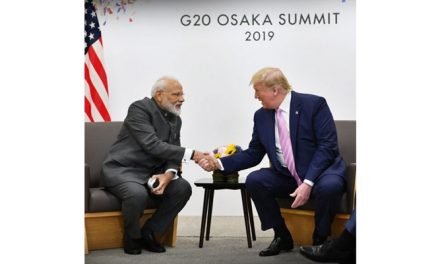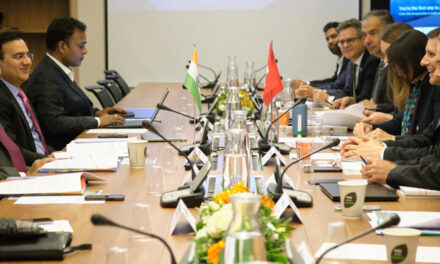 The textile industry in Tamil Nadu seeks export incentives, interest subvention and additional credit support in the upcoming Union budget for 2023-24 financial year. Facing a slowdown in orders from western markets, especially from Europe, due to global economic slowdown and a higher inflation, the export driven Tiruppur knitwear industry urged the Centre to extend credit support for micro small and medium scale units (MSMEs) under Emergency Credit Line Guarantee Scheme (ECLGS). They demanded credit support up to 20% of the existing credit.
The textile industry in Tamil Nadu seeks export incentives, interest subvention and additional credit support in the upcoming Union budget for 2023-24 financial year. Facing a slowdown in orders from western markets, especially from Europe, due to global economic slowdown and a higher inflation, the export driven Tiruppur knitwear industry urged the Centre to extend credit support for micro small and medium scale units (MSMEs) under Emergency Credit Line Guarantee Scheme (ECLGS). They demanded credit support up to 20% of the existing credit.
KM Subramanian, managing director of KM Knitwear and president of Tiruppur Exporters’ Association (TEA), said buyers were delaying payments due to adverse conditions worldwide. “A 5% interest subsidy on export credit should be given to MSME and non-MSME manufacturers,” he said.
Demand for textiles and apparels is 30-40% lesser in 2022 calendar year; October-December period witnessed a sharp decline in orders, said R Shakthivel, managing director of Daffodil Exports in Tiruppur. “Our exports were hit heavily since the Ukraine conflict began and Summer goods orders from European countries, a major category of textile orders to India, went down.”
He added that the quantum of rebate under RoSCTL (Scheme for Rebate of State and Central Taxes and Levies on Export of Garments and Made-ups) should be increased. The rebate under RoSCTL is given in the form of duty credit scrips.
Exporters believe that a free trade agreement with the UK could bring competitive advantage with Bangladesh and Vietnam in the export market. Around 2,000 textile units operate out of Tiruppur.
Dr K Venkatachalam, chief advisor to Tamil Nadu Spinning Mills Association, demanded the removal of import duty on raw cotton and imposition of anti-dumping duty (ADD) on imports of Viscose Staple Yarn. On the other hand, “There are reports of imposing ADD on Viscose Staple Fibre imported from China and Indonesia.” Since this material was critical for the industry, ADD on it should be avoided, he said.
Handloom weavers’ demand Small-scale handloom industry too is reeling from a slowdown in domestic sales, predominantly due to rise in input cost. The price rise of the key mix of gold and silver in zari (jarigai in Tamil) has resulted in an increase in Kancheepuram silk saree prices and dented sales.
J Kamalanathan, president of KS Parthasarathy handloom weavers association, said the Centre should exempt gold and silver used in zari from import duty. He also sought exempting raw silk from import duty. Since handloom weaving functions as a cottage industry, private and co-operative society weavers urged the government to spare them from GST.
Major demands
Extend credit support for MSME textile units under ECLGS up to 20% to ensure cash flow
Increase quantum of rebate under RoSCTL scheme
Removal of import duty on raw cotton imports
Imposition of ADD on imports of Viscose Staple Yarn
Exemption of handloom weavers from GST; exemption of raw silk and other inputs from import duty
Industry profile
TN ranks 1st in apparel production and 2nd in textile production in the country; TN constitutes 19% of the textile output and 40% of the spinning mills in India
The state has 54 handloom clusters, highest in the country.

















